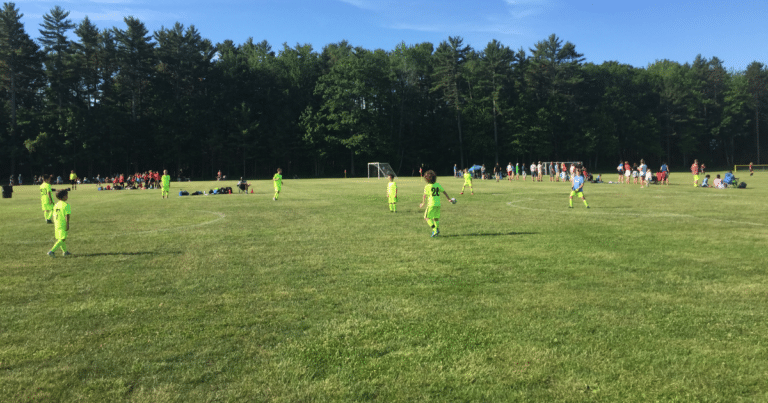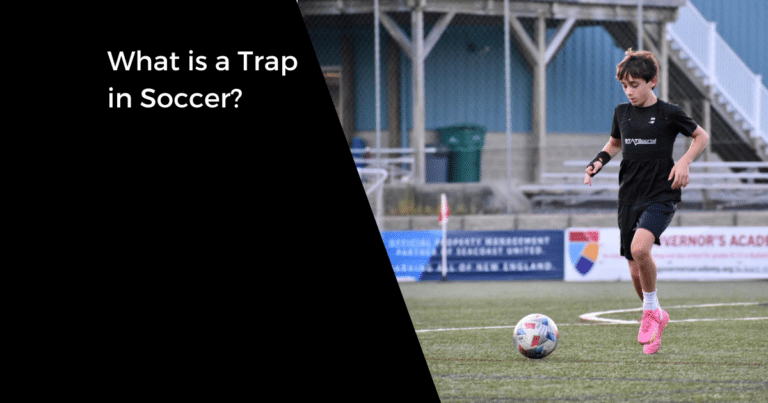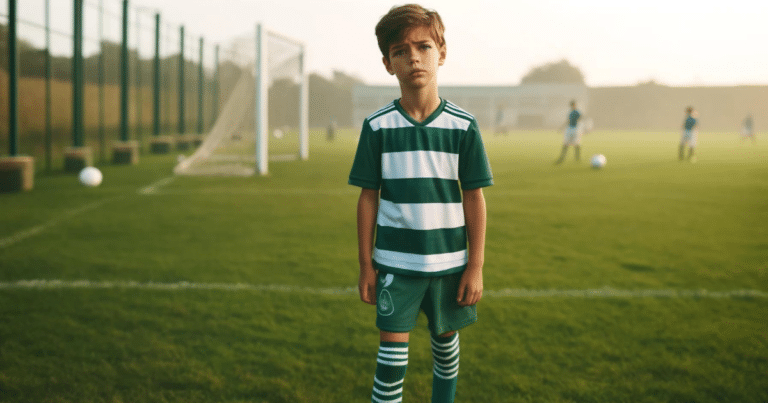How to Teach a Youth Soccer Player to Be More Aggressive
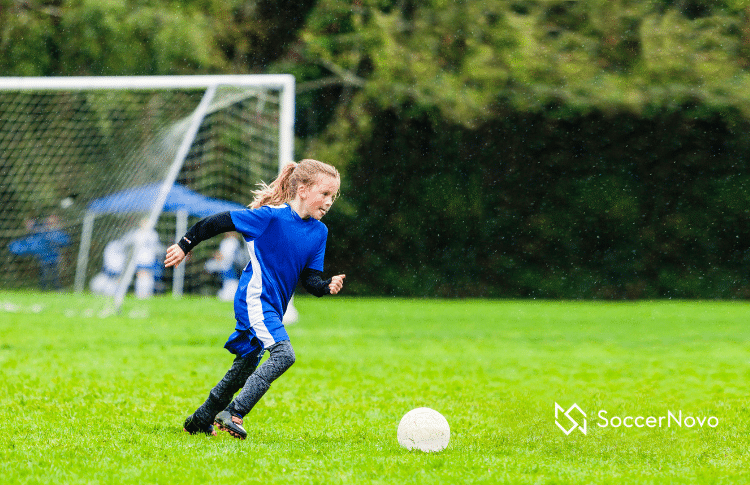
Some kids are naturally more aggressive than others. This is especially true when younger kids start playing travel soccer from rec. When I coached, I would see some kids go after the ball with reckless abandon while others frolicking around the field. I would see those same frolickers become the most aggressive kids five years later.
Key Takeaways From This Article:
- Young players will often develop more aggressiveness as they mature but some remain more reserved. I wouldn’t force it.
- Being aggressive in soccer will be more advantageous for middle school and high school ages.
- If you push too much on a player to be more aggressive, they may get too frustrated and really dislike the game. It’s a delicate balance.
While there’s nothing wrong with either way (because they are out playing), being more aggressive serves more of a purpose later in their soccer career. The earlier you can establish a habit, the better.

Whether you are a soccer coach or parent, in this article, you’ll learn how to teach a youth soccer player to be more aggressive.
Side note – there’s a fine line between being aggressive and reckless. In the latter, kids are more prone to hurt themselves or others. We obviously don’t want that. Instead, being aggressive is more about being in the action.
Importance of Aggression in Soccer
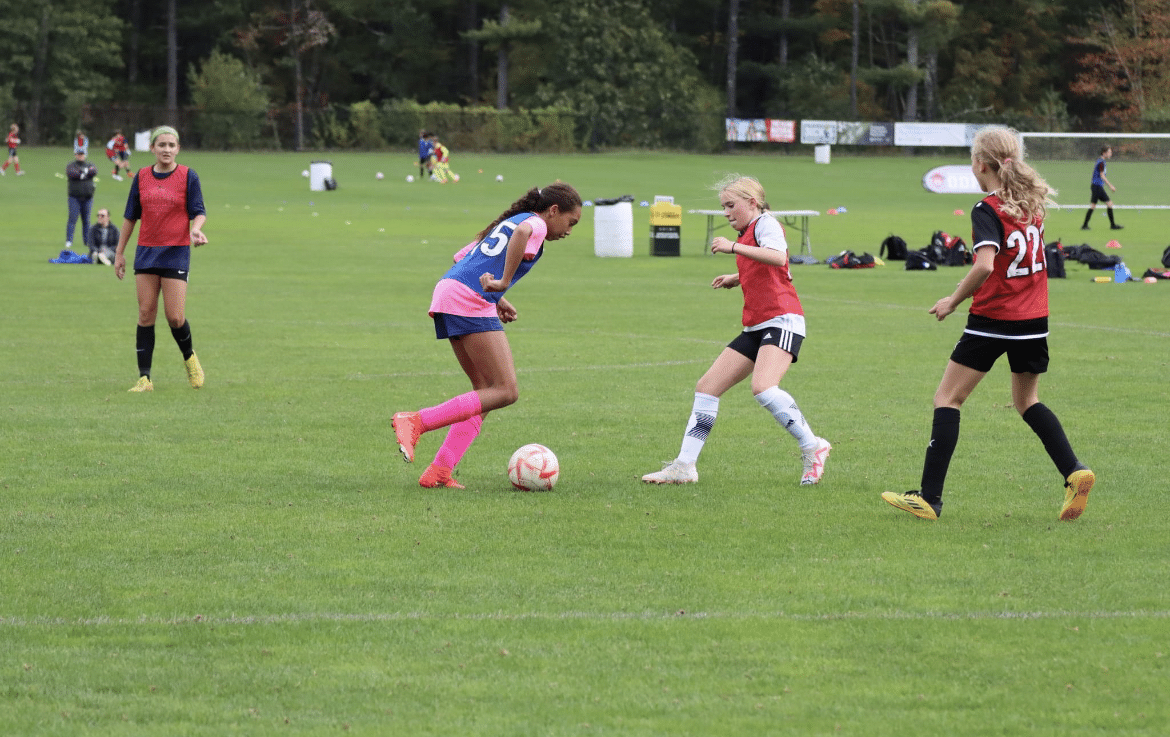
Being an aggressive player is an essential quality in soccer, and it is advantageous for players to learn how to play with a certain level of aggression.
Aggression in soccer is not about being violent or hurting others, but rather about being assertive, confident, and fearless on the field.
Aggressive players are more likely to develop quicker, win the ball more, create scoring opportunities, and defend their team’s goal more frequently.
Confident players are not afraid to take risks, make tackles, and challenge the opposition. They are also not afraid to make mistakes and learn from them.
All of this not only requires physical resilience but also mental toughness.
Coaches and parents should encourage players to be aggressive while also teaching them to control their emotions and play within the rules of the game.
At the same time, do it in a way that fits their personality…more on this later in the article.
Teaching Techniques
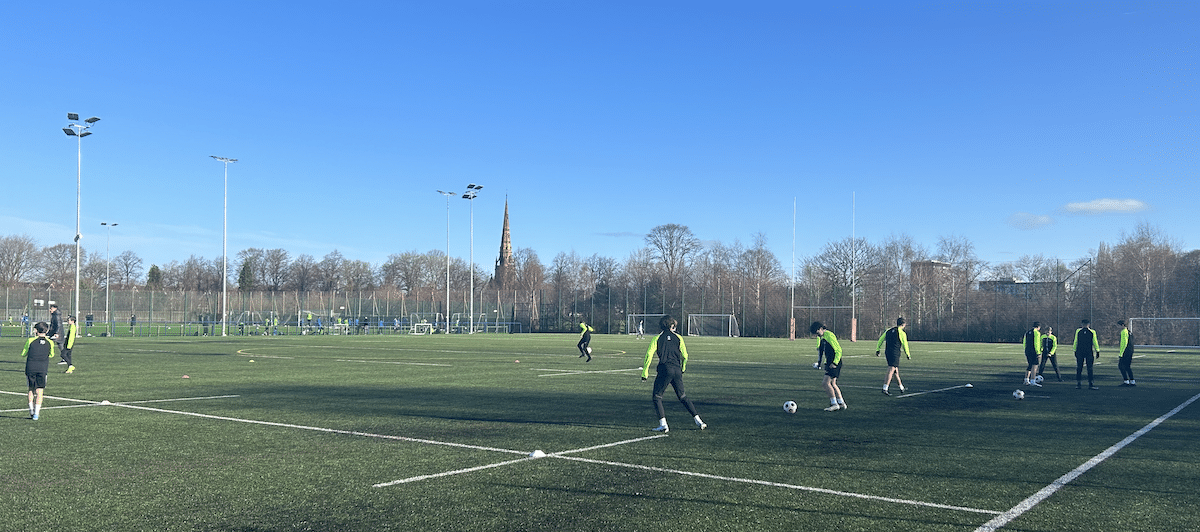
Drills for Developing More Aggressive Players
To teach a youth soccer player to be aggressive, coaches can use drills that focus on developing the player’s physical and mental strength.
One effective drill is the “one-on-one” drill, where two players face each other and compete for the ball. This drill helps players develop their speed, agility, and strength, as well as their ability to win the ball from an opponent.
Another drill that can help develop aggression is the “possession” drill. In this drill, players are divided into teams and must work to keep possession of the ball while the other team tries to win it back. This drill helps players learn how to be aggressive and assertive when fighting for the soccer ball.
Each soccer drill requires players to fight to get the ball. This can help a player be more in the action and get rewarded when they make a tackle or a move passed the defender.
Role-Playing Scenarios
Role-playing scenarios can be an effective way to teach youth soccer players how to be aggressive in game situations.
Coaches can set up scenarios where players must defend against an opponent or attack the goal, and then provide feedback on the player’s performance.
For example, coaches can set up a scenario where one player is attacking the goal and another player is defending.
The coach can then provide feedback on the defender’s positioning, body language, and aggressiveness.
This type of scenario helps players develop their aggressiveness in a safe and controlled environment.
Positive Reinforcement
Coaches should provide positive feedback and encouragement when players are proactive on the field.
For example, coaches can praise players who make tackles or win the ball from an opponent rather than making a good pass.
This positive reinforcement helps players develop confidence in their abilities and encourages them to be more aggressive in future games.
In addition to the coach, parents can provide positive feedback as well. Instead of focusing on assists and goals, call out the effort on the field.
Don’t Push Kids Too Hard

When it comes to teaching youth soccer players to be aggressive, it’s important not to push them too hard.
While it’s important to challenge them and encourage them to be competitive, it’s equally important to remember that they’re still young and still developing. I’ve seen when tentative soccer players turn more aggressive as they get older. It happens all the time.
Pushing them too hard can lead to burnout, injury, and even a loss of interest in the sport. It’s important to strike a balance between pushing them to be their best and allowing them to have fun and enjoy the game.
As a parent, teach and show them how to be more aggressive on the soccer field. But, at the same time, take into account your child’s personality at the moment. If they are reserved off the field, there’s a good chance they won’t be aggressive on the field. Don’t force something that’s not already there…it may come with time!
Coaches should avoid using negative reinforcement or punishment as a means of motivating players. Instead, they should focus on positive reinforcement and encouragement. This can include praising good efforts, celebrating small victories, and providing constructive feedback.
Overall, teaching youth soccer players to be more aggressive can help them develop their game more quickly and learn that it’s okay to make mistakes!

Written By: SoccerNovo
SoccerNovo is an independent youth soccer media brand built to help parents, players, and coaches better understand the game and the pathways available in U.S. soccer. Our mission is to make youth soccer simpler, clearer, and more accessible for everyone involved in it.
Let’s connect


